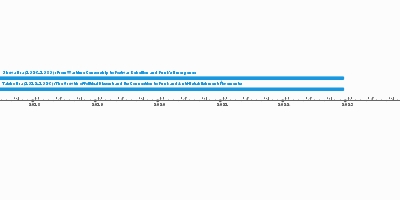Heisei Otaku (1980s-2000s) (1 ene 1990 año – 1 dic 2019 año)
Descripción:
Description:Youth deeply invested in anime, manga, video games, and related hobbies. During the Heisei era, Otaku formed even tighter knit communities, attending conventions and engaging in fandom activities, and saw a significant shift in societal perception.
Cultural / Historical Context:
Otaku culture evolved alongside the growth of anime, manga, and video game industries. The rise of the internet provided new opportunities for Otaku to connect and share their interests. During the Heisei era, what was once a more insular community began to gain mainstream acceptance and cultural influence.
Events/Names:
1980s: Initial emergence of Otaku culture and the term "Otaku", often with negative connotations.
1990s and 2000s: Increasing mainstream acceptance of Otaku culture.
Specific Events:
1995: The release of Neon Genesis Evangelion: This anime series had a profound impact on Otaku culture, attracting a large and dedicated fanbase.
2005: The film Densha Otoko (Train Man): This film, based on a true story, portrayed Otaku in a sympathetic light and contributed to the demarginalization of the subculture.
Evolution in the Heisei Era:
From Marginalized to Mainstream: Unlike the Showa era where Otaku were often viewed negatively and associated with social awkwardness, the Heisei era saw Otaku culture become increasingly mainstream. This was due to the growing popularity of anime, manga, and video games, as well as increased media representation.
Diversification of Interests: While early Otaku culture focused primarily on anime and manga, the Heisei era saw a diversification of interests, including video games, cosplay, and other related hobbies.
Online Communities: The rise of the internet and social media provided new platforms for Otaku to connect, share their interests, and form communities. This led to the growth of online fandoms and the increasing visibility of Otaku culture.
Connection to Youth Rebellion/Punk Sentiments:
While not overtly rebellious, Otaku subculture represented a withdrawal from mainstream society and a rejection of conventional social norms. Their intense focus on niche interests and their formation of alternative communities challenged the emphasis on conformity and social success in Japanese culture.
Why This Subculture Matters:
Once marginalized, Otaku culture became mainstream during Heisei, shaping global perceptions of Japanese pop culture and driving major industries.
Equivalent Western Example:
Comparable to "Trekkies" (Star Trek fans) and other science fiction/fantasy fandoms in the West, who also created passionate communities around their shared interests and challenged mainstream notions of what was cool or acceptable.
Añadido al timeline:
fecha:
1 ene 1990 año
1 dic 2019 año
~ 29 years
